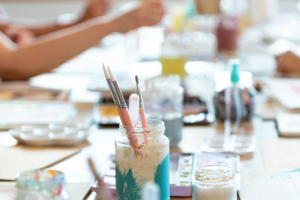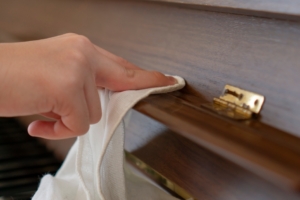How To Properly Maintain Your Piano for Longevity

Owning a piano comes with the responsibility of maintaining it to ensure its longevity and sound quality. Proper care preserves its craftsmanship and enhances its performance over time. Whether you’re planning to buy your first piano or taking care of an old model you’ve had for years, this guide will walk you through essential maintenance steps to keep your piano in peak condition.
Regular Cleaning
Proper cleaning is the first step in maintaining your piano. Begin by dusting the surface with a soft, dry cloth to prevent scratches. Never use liquid cleaners on the exterior, as they can damage the wood finish.
When cleaning the keys, wipe them gently with a slightly damp, lint-free cloth, keeping moisture away from the edges. Cleaning your piano regularly maintains its aesthetics and ensures its components remain functional.
Humidity Control
Pianos are highly sensitive to environmental changes, particularly humidity. Excess moisture can cause swelling, while very dry conditions may result in cracking or warping of the wood.
Aim to maintain a consistent room humidity level of around 45 to 55 percent. Using a humidifier or dehumidifier can help you achieve this balance. Additionally, place your piano away from windows, direct sunlight, and heating or cooling vents to avoid sudden changes in temperature and humidity.
Invest in Protective Accessories
Using the right accessories can go a long way in protecting your piano. A well-fitting cover shields it from dust and accidental spills. Consider using a humidity control system designed for pianos to maintain internal balance within the instrument.
Additionally, floor protectors can prevent damage to the piano and your flooring. These simple additions can significantly extend your piano’s lifespan.
Schedule Regular Tuning
To maintain optimal sound quality, pianos require frequent tuning. Even if you hardly play, environmental factors and natural string tension changes cause pianos to go out of tune.
You should aim to tune your piano at least once or twice a year, especially in locations with significant seasonal swings. Whether you own a new or used piano can also determine how often it may need tuning, as each has different tuning needs. Regular tuning ensures your piano produces accurate tones and remains a joy to play.
Professional Check-Ups
Professional piano assessments can address deeper maintenance issues you may not notice. A certified piano technician can inspect and maintain internal components such as hammers, strings, and pedals.
Schedule a professional check-up annually or whenever you notice persistent tuning issues, unusual sounds, or mechanical failures. Expert attention resolves complex problems before they escalate.
Proper Maintenance Leads to Longevity
By following these longevity-boosting maintenance tips, your piano will remain a beautiful and reliable instrument for years to come. These maintenance steps will go a long way in preserving its functionality and sound quality. Enjoy your piano at its best for generations to come.





